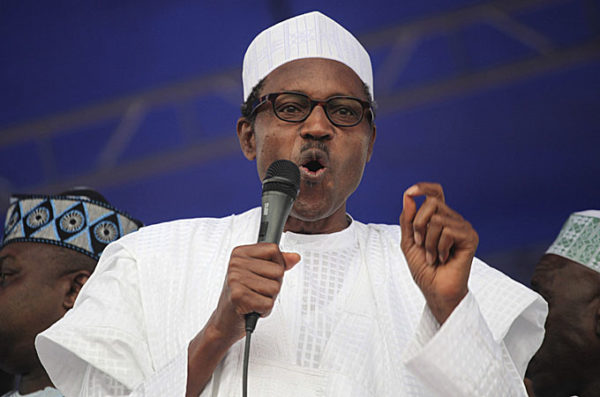It has been tough for investors in Nigeria to keep the faith as weak oil prices, stagnant growth and high unemployment have cast a shadow over the country’s prospects.
But for those investors who intend to stick it out, this market could still prove to be worth the gamble.
Two of the steps that President Muhammadu Buhari needs to take to turn around the economy, which in September had shrunk 2% from a year ago, are a change in economic policy and a more focused attempt to diversify trade.
The West African country has a lot of potential. According to research by AfriCapital, the sub-Saharan consumer market is expected to grow by $645-billion (about R9-trillion) between now and 2025. Nigeria is expected to account for about 15% of that figure.
Looking at the country now, it is difficult to picture this materialising. The most populous country on the continent is facing a recession fuelled by failing oil and commodity prices. Although a recovery in the oil price could help Nigeria rise out of the economic ashes, it needs to wean itself off its dependence on oil.
Speaking at the South Africa-Nigeria banking and finance forum held in Sandton this week, Dele Babade, founder and CEO of AfriCapital, said: “The low-hanging fruit, from a long-term investment perspective, lies in solving the issues with infrastructure and power. Power has a knock-on effect on everything. It affects health, education and productivity.”
Nigeria has to fix its roads and logistics infrastructure to make trade more efficient. This, along with a railway system that links manufacturing plants to ports, would help boost the economy if the government could get it right, added Babade.
For portfolio investors seeking short-term returns, the situation in Nigeria does not present a particularly attractive opportunity. However, Old Mutual Investment Group – the largest asset manager in Africa, with assets under management of more than $50-billion – is planting its flag in Nigeria.
Hywel George, the group’s director of investments, said it could invest in very long-dated assets on behalf of life policyholders because their contribution time frame was long-term. “In the meantime, we can invest in things like illiquid assets. So we’ve been investing in infrastructure, real estate, power deals and agriculture,” said George. The group has also invested in equities, bonds and credit.
The gap in the group’s portfolio has been Nigeria. But it is going in on the asset management and life insurance side. “The reasons are fairly obvious in terms of the potential in capital markets in Nigeria, particularly for a life insurer in Nigeria,” said George.
Nigeria is still very much a cash-based economy… Most customers still prefer cash because they appreciate the face-value component.
“While we’re keen to deploy business and client capital in Nigeria, we are also invested right now in assets in Nigeria. There are many challenges when it comes to investing in Nigeria as well as the rest of the continent.”
But George admitted that investment was difficult without having strategic partnerships.
South Africa is seen as a key partner in assisting Nigeria in terms of getting businesses up and running and the presence of South African firms is seen as an asset in terms of assisting with skills transfer.
However, Babade said, those venturing into the Nigerian market should be careful not to be perceived as the new “colonialists”.
Foreign investors considering investing in Nigeria have to look beyond the current macroeconomic shock. The government plans to boost the economy by taking advantage of the expanding middle class, which a lot of banks are also eyeing for growth opportunities.
A report released by Ericsson earlier this year showed that 53% of Nigeria’s adult population had a bank account, and only about 42% of the banked population uses online banking. Most Nigerians still prefer using cash.
“Nigeria is still very much a cash-based economy,” said Ade Shonubi, MD of the Nigeria Interbank Settlement System. “Most customers still prefer cash because they appreciate the face-value component.”
KPMG’s Africa Banking Customer Satisfaction Survey shows that Nigeria has 148million cellphone users. Of those, about 92million access the internet on their phone. But this had not been particularly profitable for the banks, said Shonubi.
One of the barriers the report unearthed was that customers found it difficult to navigate online and on mobile banking platforms. As a result, they simply gave up.
The challenge for banks is to improve in three areas: experience, trust and accessibility. Getting these right will ensure that their clients use their online and mobile banking platforms.
“Banks need to find solutions that are as close as possible to cash. They need to think like the people instead of trying to come up with solutions they can’t sell to customers simply because they worked elsewhere,” said Shonubi.










